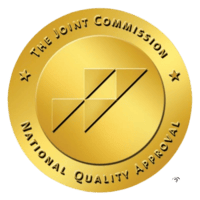The initial phase of detoxification is a critical period where the body initiates a multifaceted healing journey. During the first 30 days, individuals may experience a range of physical and emotional reactions as their systems begin to adjust. While withdrawal symptoms can be challenging, they are often a precursor to enhanced mental clarity and improved emotional stability. Moreover, addressing nutritional deficiencies through dietary changes lays the groundwork for long-term health improvements. Understanding these physiological and psychological transformations reveals much about the detox process and its profound impact on overall well-being.
Initial Physical Reactions
What can one expect during the initial phase of detoxification from alcohol or drugs? The journey often begins with a series of withdrawal symptoms that manifest as the body reacts to the absence of the substance. These symptoms can vary greatly depending on the substance used, the duration of use, and individual health factors. Common withdrawal symptoms include nausea, sweating, tremors, and headaches, all of which can contribute to considerable physical discomfort. During this early phase, the body works hard to restore its natural balance. As substances leave the system, physical reactions may intensify, leading to challenges such as insomnia and fatigue. These experiences are key indicators of the body’s adjustment and healing process. Medical supervision is often recommended to monitor these symptoms and provide necessary interventions. This support can help manage physical discomfort and guarantee the safety of the individual during this vulnerable time.
Mental Clarity and Emotional Shifts
During the detoxification process, individuals often begin to experience significant shifts in mental clarity and emotional well-being. As the body eliminates toxins accumulated from substance abuse, many report a gradual reduction in mental fog, which can cloud thoughts and hinder decision-making. This newfound clarity enhances cognitive function, allowing individuals to engage more meaningfully in daily activities and interpersonal relationships.
Additionally, detoxification can lead to emotional shifts that are often marked by fluctuations in mood. While some may initially encounter emotional instability as the brain adjusts to the absence of substances, this phase is typically temporary. As the detox process continues, many start to experience a more stable emotional state. This change can pave the way for improved self-awareness and emotional regulation, fostering resilience against stressors that may have previously triggered substance use.
Restoration of Nutritional Balance
As mental clarity and emotional stability begin to take root during detoxification, individuals also face the important task of restoring their nutritional balance. Substance abuse often leads to significant nutritional deficiencies, as the body’s ability to absorb and utilize essential nutrients is compromised. During this pivotal period, dietary adjustments become paramount to support the healing process. Incorporating a variety of whole foods, rich in vitamins and minerals, is essential. Nutrient-dense options such as leafy greens, fruits, whole grains, lean proteins, and healthy fats can help replenish depleted stores and foster recovery. Refer to a detailed detoxification program for guidance on nutritional changes.
Additionally, hydration plays a critical role; adequate water intake aids in the elimination of toxins and supports metabolic functions. Supplementation may also be beneficial, particularly for those experiencing severe deficiencies. However, it is important to consult with a healthcare professional to tailor a nutrition plan that aligns with individual needs.
Long-Term Health Improvements
Long-term health improvements following detoxification extend far beyond mere physical recovery; they encompass a thorough revitalization of the body’s systems and functions. As individuals shift away from substance use, many experience significant benefits that contribute to a healthier lifestyle. One notable improvement is the reduction in cravings, which often diminishes as the body recalibrates itself and finds balance. This reduction allows individuals to regain control over their choices.
Furthermore, detoxification often leads to improved sleep patterns. A well-rested mind and body enable individuals to better manage stress and emotional triggers that may have previously led to substance use. Enhanced sleep quality supports cognitive function, emotional resilience, and physical well-being. In addition to these specific improvements, individuals may also notice enhanced energy levels, improved immune function, and a greater sense of mental clarity. These cumulative effects contribute to a more fulfilling life, encouraging ongoing commitment to health and wellness. Ultimately, the journey of detoxification lays a solid foundation for enduring health improvements and a brighter future.

Final Thoughts
The first 30 days of detoxification represent a critical period in the healing journey, marked by significant physical, mental, and nutritional changes. Initial withdrawal symptoms give way to enhanced cognitive function and emotional stability, while dietary adjustments address nutritional deficiencies. Improved sleep patterns and increased energy levels facilitate better stress management and contribute to sustainable recovery. For more information, review the various treatment modalities available during this phase. Ultimately, this transformative phase lays a solid foundation for long-term health and wellness, underscoring the body’s remarkable capacity for self-restoration.
At BlueCrest Detox, we’re dedicated to elevating you from the struggles of substance use to the peaks of recovery and resilience. Our expert team offers personalized, evidence-based treatment services tailored to support your unique journey toward healing. Reach out to us for the compassionate care you deserve on your path to wellness. Follow us on Facebook for ongoing support, insights, and inspiration on your recovery journey.
Frequently Asked Questions
How Long Will Withdrawal Symptoms Last During Detox?
Withdrawal symptoms during detox can vary greatly based on the substance used and individual factors. Generally, the detox timeline for withdrawal duration may range from a few days to several weeks. For alcohol or opioids, acute symptoms typically peak within the first week, while for stimulants, they may last longer. It is essential to seek professional guidance, as tailored treatment can mitigate discomfort and improve recovery outcomes during this vital phase.
Will I Experience Cravings During the First Month?
During the first month of recovery from substance abuse, it is common to experience various cravings types, as the body and mind adjust to the absence of the substance. Cravings can be psychological, triggered by environmental cues or emotional states. Effective cravings management strategies, such as mindfulness techniques, support groups, and professional counseling, can greatly aid individuals in maneuvering this challenging period, enhancing their chances of successful recovery and long-term sobriety.
Can I Exercise During the Detox Process?
Exercising during the detox process can be beneficial, but it is crucial to take into account exercise intensity. Engaging in moderate physical activity can enhance detox benefits by improving mood, reducing stress, and promoting overall well-being. However, individuals should listen to their bodies and avoid high-intensity workouts that may lead to fatigue or emotional strain. Consulting with healthcare professionals can provide guidance tailored to individual health needs and guarantee a safe and effective detox experience.
What Support Options Are Available During Detox?
During detox, a variety of support options are available to facilitate recovery. Support groups provide a community environment, while professional therapy offers individualized guidance. Nutritional guidance is essential for restoring health, complemented by detox supplements that aid the body’s recovery. Additionally, incorporating holistic practices and mindfulness techniques can enhance emotional well-being and resilience. These combined resources create an extensive support system, promoting a successful shift through the detoxification process.
How Can I Cope With Stress While Detoxing?
Coping with stress during detox is essential for maintaining emotional stability. Employing mindfulness techniques can enhance awareness and promote calmness. Incorporate healthy distractions, such as engaging in hobbies or exercise, to divert attention from cravings. Additionally, practicing relaxation exercises, such as deep breathing or meditation, can considerably reduce stress levels. Implementing these stress management strategies will support your overall well-being and foster a more positive detox experience, aiding in your recovery journey.




